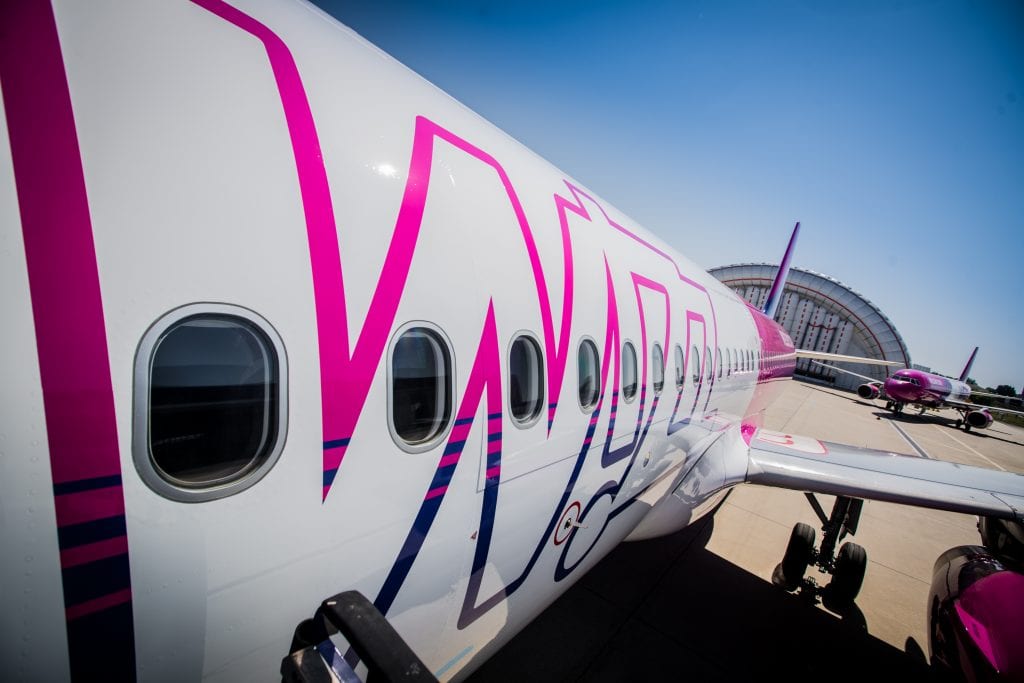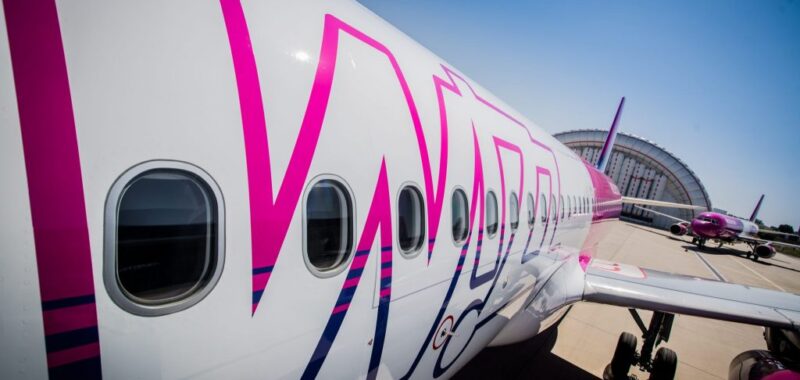
Skift Take
Wizz Air joins a growing list of airlines to report a steep drop in profits for the last quarter. It remains to be seen if this is a benign correction or the start of something more significant.
Wizz Air is being hit harder than most by an industry-wide engine grounding. On Thursday, the European low-cost giant gave investors an update detailing just how badly its fleet is being impacted.
At the end of June, Wizz had 46 jets out of action due to inspections – that’s around one in every five of its planes.
The root cause is quality problems with some Pratt & Whitney engines that power the airlineâs Airbus A320neo aircraft. These new-generation jets make up almost two-thirds of Wizz Airâs fleet.
In July 2023, the manufacturer discovered that some of its geared turbofan units produced between 2015 and 2021 had contaminated powdered metal. If left unchecked, this could interfere with the regular function of the engines.Â
In a sobering update, Wizz predicted that the problem is not going away anytime soon. On Thursday, the airline said it expects the peak of the groundings to come in September 2025, when 47 planes are due to be out of service. While this is down slightly on the earlier estimate of 50 aircraft, the average turnaround time for each engine is 300 days, making each repair incredibly time-consuming and potentially costly.
Wizz is trying to boost its pool of spare parts to help limit the operational impact, but tight global supply chains make this challenging.
The company noted that compensation from Pratt & Whitney does not fully offset the cost of the grounding. The payments cover the period up until the engines are returned to the airline, but not any downtime while they are redeployed into regular service. Wizz confirmed that âmanagement is in negotiations with regards engine return targets for next year, as well as compensation rates and structure.â
What Else is Impacting Wizz?
Wizz is also facing separate capacity issues from delivery delays at Airbus. The airline says it could see between 30 and 35 aircraft delayed next year, which may impact its fleet program into 2026 and beyond. The Budapest-based operator is not alone in this respect, with almost every major airline experiencing delays from manufacturers.
Wizz also flagged âstructural air traffic control [ATC] issues persisting.â It highlighted its first flights of the day being delayed, which can lead to a higher number of end-of-day cancellations. Ryanair chief operating officer Neal MacMahon recently blasted the continent’s ATC as “shambolic.”
Despite the challenges, Wizz’s on-time performance improved during the quarter, from 60.5% to 67.6% of flights.
Whatâs the Bottom Line Impact?
The update on the grounded planes was contained within Wizz Airâs second-quarter earnings report. The budget airline posted a 44% drop in its operating profit for the quarter ending June 30, with engine issues identified as a key factor.Â
Wizz also trimmed its forecast for the coming year. Net income is now expected to be in the range of â¬350-450 million ($378 million to $486 million). This is down sharply from earlier estimates of â¬500-600 million.
Responding to the figures, Wizz Air CEO József Váradi offered an upbeat assessment: âDespite the competitive landscape and ongoing supply chain challenges, our strategic focus on delivering the lowest fares, improving our route network, and maintaining high operational efficiency has yielded results.
âLooking ahead, capacity is stabilizing and we are focusing on further optimizing our operations, with an emphasis on improving our most profitable bases and enhancing efficiency,â he added.
What’s Happening at Other Airlines?
Wizz is the latest European carrier to report financial headwinds. The Lufthansa Group, Air France-KLM, and Norwegian have all expressed concern about declining profit margins over the coming months.
Just last week, Ryanair – Wizz’s bigger rival – spooked markets by cutting its outlook for ticket prices. The Irish low-cost airline said fares will be âmaterially lowerâ in the all-important summer period. Ryanairâs average ticket price fell nearly 15% in the April-to-June quarter compared to the same time in 2023.
It reported a 46% fall in profits – despite a 10% rise in the number of passengers – yet it remains one of the worldâs most profitable major airlines.
Across the Atlantic, Southwest recently posted a major decline in its profits as it announced that it would roll out premium seating in a bid to boost its declining revenues. CEO Bob Jordan said âurgent and deliberate steps to mitigate near-term revenue challenges,â were being implemented.
American Airlines also reported a 46% fall in earnings last week as it seeks to recover from a controversial distribution strategy that led to the departure of its chief commercial officer.
Airlines Sector Stock Index Performance Year-to-Date
What am I looking at? The performance of airline sector stocks within the ST200. The index includes companies publicly traded across global markets including network carriers, low-cost carriers, and other related companies.
The Skift Travel 200 (ST200) combines the financial performance of nearly 200 travel companies worth more than a trillion dollars into a single number. See more airlines sector financial performance.
Read the full methodology behind the Skift Travel 200.

